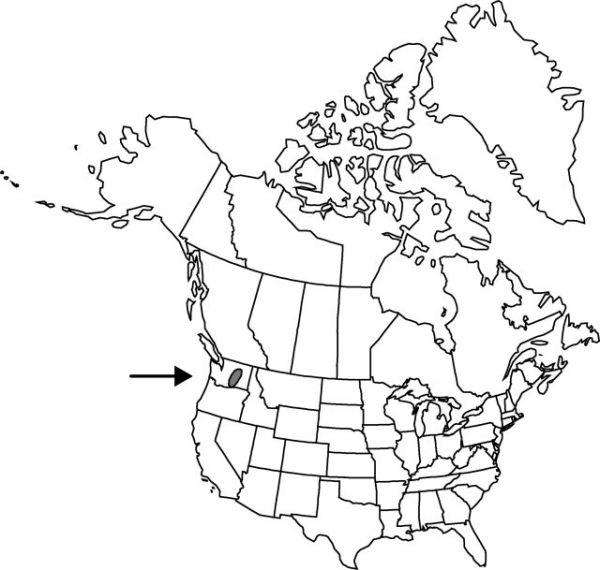Allium scilloides
Proc. Amer. Acad. Arts 14: 229. 1879.
Bulbs 1–5, not clustered on stout, primary rhizome, increase bulbs ± equaling parent bulbs, never appearing as basal cluster, rhizomes absent, globose to ovoid, 1–2 cm × 8–20 mm; outer coats enclosing renewal bulbs, reddish or brownish, membranous, lacking cellular reticulation or cells arranged in only 2–3 rows distal to roots, ± quadrate, without fibers; inner coats white or light-brown, cells absent or obscure and ± quadrate. Leaves deciduous with scape after seeds mature, 2, basally sheathing, sheaths not extending much above soil surface; blade solid, flat, falcate, 6–15 cm × 2–4 mm, margins entire or obscurely papillose. Scape usually forming abcission layer and deciduous with leaves after seeds mature, frequently breaking at this level after pressing, solitary, erect, solid, strongly flattened, 2-edged or winged distally, wings obscurely papillose, 4–8 cm × 1–3 mm. Umbel decisuous with scape, erect, compact, 5–12-flowered, hemispheric, bulbils unknown; spathe bracts persistent, 2–3, 3-veined, broadly ovate, ± equal, apex acute. Flowers campanulate, 6–8 mm; tepals erect, white or pinkish with green midribs, becoming reddish purple, broadly elliptic-oblong, ± equal, becoming rigid, papery and ± connivent over fruit, margins entire, apex obtuse, not involute at tip; stamens included; anthers purple; pollen white to gray; ovary crestless or obscurely crested; processes 3, central, rounded, margins entire; style linear, equaling stamens; stigma capitate, unlobed or minutely 3-lobed; pedicel 2–10.5 (–18.5 in fruit) mm. Seed-coat dull; cells smooth. 2n = 14.
Phenology: Flowering Mar–Apr.
Habitat: Barren, gravelly soils, arid interior slopes and ridges well back from Columbia River
Elevation: 300–1300 m
Distribution

Wash.
Discussion
Of conservation concern.
Allium scilloides is known only from east of the Cascades.
Selected References
None.
Lower Taxa
"thicker" is not a number."broad" is not a number.